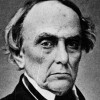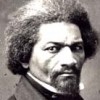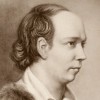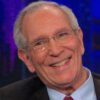In the nature of things, those who have not property, and see their neighbors possess much more than they think they need, cannot be favorable to laws made for the protection of property. When this class becomes numerous, it glows clamorous. It looks on property as its prey and plunder, and is naturally ready, at all times, for violence and revolution.
Daniel Webster (1782-1852) American statesman, lawyer, orator
Speech (1820-12-22), “First Settlement of New England,” Plymouth, Massachusetts
(Source)
On the bicentennial of the Pilgrims' landing in the New World.
Quotations about:
economic injustice
Note not all quotations have been tagged, so Search may find additional quotes on this topic.
The American people have this lesson to learn: That where justice is denied, where poverty is enforced, where ignorance prevails, and where any one class is made to feel that society is an organized conspiracy to oppress, rob, and degrade them, neither persons nor property will be safe.
Frederick Douglass (1817-1895) American abolitionist, orator, writer
Speech (1886-04-16), “Strong to Suffer, and Yet Strong to Strive,” Israel Bethel Colored Methodist Episcopal Church, Washington, D.C.
(Source)
This new understanding undermines the old admiration of worldly success as such. We are beginning to abandon our tolerance of the abuse of power by those who betray for profit the elementary decencies of life.
Franklin Delano Roosevelt (1882-1945) American lawyer, politician, statesman, US President (1933-1945)
Speech (1937-01-20), Inaugural Address, Washington, D.C.
(Source)
Will there be a future? We feel we might almost ask ourselves this question when we see so much terrible darkness. Grim confrontation between the selfish and the wretched. In the selfish, prejudices, the ignorance of a superior education, appetite fed by overindulgence, the insensitivity of an indurating prosperity, fear of suffering that in some extends to an aversion to those who suffer, relentless complacency, an ego so inflated it denies access to the soul. In the wretched, greed, envy, a hatred of seeing others enjoying themselves, the convulsions of the human beast within them seeking satisfaction, hearts befogged, sadness, need, fatalism, ignorance impure and simple.
[L’avenir arrivera-t-il? il semble qu’on peut presque se faire cette question quand on voit tant d’ombre terrible. Sombre face-à-face des égoïstes et des misérables. Chez les égoïstes, les préjugés, les ténèbres de l’éducation riche, l’appétit croissant par l’enivrement, un étourdissement de prospérité qui assourdit, la crainte de souffrir qui, dans quelques-uns, va jusqu’à l’aversion des souffrants, une satisfaction implacable, le moi si enflé qu’il ferme l’âme; chez les misérables, la convoitise, l’envie, la haine de voir les autres jouir, les profondes secousses de la bête humaine vers les assouvissements, les cœurs pleins de brume, la tristesse, le besoin, la fatalité, l’ignorance impure et simple.]
Victor Hugo (1802-1885) French writer
Les Misérables, Part 4 “St. Denis,” Book 7 “Argot,” ch. 4 (4.7.4) (1862) [tr. Donougher (2013)]
(Source)
(Source (French)). Alternate translations:Will the future come? It seems that we may almost ask this question when we see such terrible shadow. Sullen face-to-face of the selfish and the miserable. On the part of the selfish, prejudices, the darkness of the education of wealth, appetite increasing through intoxication, a stupefaction of prosperity which deafens, a dread of suffering which, with some, is carried even to aversion for sufferers, an implacable satisfaction, the me so puffed up that it closes the soul; on the part of the miserable, covetousness, envy, hatred of seeing others enjoy, the deep yearnings of the human animal towards the gratifications, hearts full of gloom, sadness, want, fatality, ignorance impure and simple.
[tr. Wilbour (1862)]Will the future arrive? it seems as we may almost ask this question on seeing so much terrible shadow. There is a somber, face-to-face meeting of the egotists and the wretched. In the egotist we trace prejudices, the cloudiness of a caste education, appetite growing with intoxication, and prosperity that stuns, a fear of suffering which in some goes so far as an aversion from the sufferers, an implacable satisfaction, and the feeling of self so swollen that it closes the soul. In the wretched we find covetousness, envy, the hatred of seeing others successful, the profound bounds of the human wild beast at satisfaction, and hearts full of mist, sorrow, want, fatality, and impure and simple ignorance.
[tr. Wraxall (1862)]Will the future arrive? It seems as though we might almost put this question, when we behold so much terrible darkness. Melancholy face-to-face encounter of selfish and wretched. On the part of the selfish, the prejudices, shadows of costly education, appetite increasing through intoxication, a giddiness of prosperity which dulls, a fear of suffering which, in some, goes as far as an aversion for the suffering, an implacable satisfaction, the I so swollen that it bars the soul; on the side of the wretched covetousness, envy, hatred of seeing others enjoy, the profound impulses of the human beast towards assuaging its desires, hearts full of mist, sadness, need, fatality, impure and simple ignorance.
[tr. Hapgood (1887)]Will the future ever arrive? The question seems almost justified when one considers the shadows looming ahead, the sombre confrontation of egoists and outcasts. On the side of the egoists, prejudice -- that darkness of a rich education -- appetite that grows with intoxication, the bemusement of prosperity which blunts the sense, the fear of suffering which in some cases goes so far as to hate all sufferers, and unshakeable complacency, the ego so inflated it stifles the soul; and on the side of the outcasts, greed and envy, resentment at the happiness of others, the turmoil of the human animal in search of personal fulfilment, hearts filled with fog, misery, needs, and fatalism, and simple, impure ignorance.
[tr. Denny (1976)]Will the future come? We can almost ask this question, it seems, when we see such terrible shadows. Sullen face-to-face encounter of the selfish and the miserable. On the side of the selfish, prejudices, the darkness of the education of wealth, appetite increasing through intoxication, a stultifying of prosperity, which deafens, a dread of suffering taken, for some, as far as an aversion to sufferers, an implacable satisfaction, the self so puffed up it closes the soul; on the side of the miserable, covetousness, envy, hatred of seeing others enjoy, the deep yearnings of the human animal toward gratification, hearts filled with gloom, sadness, want, inevitability, ignorance impure and simple.
[tr. Wilbour/Fahnestock/MacAfee (1987)]
Seems to me it’s a simple concept — the concentration of wealth is a Bad Idea. Since capital tends to concentrate, it is one of the functions of government to oppose this tendency. That’s why we used to have antimonopoly laws and the like.
When you see government encouraging the concentration of wealth, check your wallet.Molly Ivins (1944-2007) American writer, political columnist [Mary Tyler Ivins]
Essay (1991-02), “Season of Drear,” The Progressive
(Source)
Once it is realized that business monopoly in America paralyzes the system of free enterprise on which it is grafted, and is as fatal to those who manipulate it as to the people who suffer beneath its impositions, action by the government to eliminate these artificial restraints will be welcomed by industry throughout the nation.
For idle factories and idle workers profit no man.Franklin Delano Roosevelt (1882-1945) American lawyer, politician, statesman, US President (1933-1945)
Message (1938-04-29) to Congress, On Curbing Monopolies
(Source)
No people, least of all a democratic people, will be content to go without work or to accept some standard of living which obviously and woefully falls short of their capacity to produce. No people, least of all a people with our traditions of personal liberty, will endure the slow erosion of opportunity for the common man, the oppressive sense of helplessness under the domination of a few, which are overshadowing our whole economic life.
Franklin Delano Roosevelt (1882-1945) American lawyer, politician, statesman, US President (1933-1945)
Message (1938-04-29) to Congress, On Curbing Monopolies
(Source)
Competition, of course, like all other good things, can be carried to excess. Competition should not extend to fields where it has demonstrably bad social and economic consequences. The exploitation of child labor, the chiseling of workers’ wages, the stretching of workers’ hours, are not necessary, fair or proper methods of competition.
Franklin Delano Roosevelt (1882-1945) American lawyer, politician, statesman, US President (1933-1945)
Message (1938-04-29) to Congress, On Curbing Monopolies
(Source)
Among us today a concentration of private power without equal in history is growing. This concentration is seriously impairing the economic effectiveness of private enterprise as a way of providing employment for labor and capital and as a way of assuring a more equitable distribution of income and earnings among the people of the nation as a whole.
Franklin Delano Roosevelt (1882-1945) American lawyer, politician, statesman, US President (1933-1945)
Message (1938-04-29) to Congress, On Curbing Monopolies
(Source)
Ill fares the land, to hastening ills a prey
Where wealth accumulates, and men decay.Oliver Goldsmith (1730-1774) Irish poet, playwright, novelist
Poem (1769) “The Deserted Village,” ll. 51-52
(Source)
See where Congress passed a two billion dollar bill to relieve bankers’ mistakes and loan to new industries. You can always count on us helping those who have lost part of their fortune, but our whole history records nary a case where the loan was for the man who had absolutely nothing.
Our theory is to help those along who can get along even if they don’t get it.
Confess yure sorrows, yure fears, yure hopes, yure love, and even yure deviltrys tew men, but don’t let them git a smell ov yure poverty—poverty haz no friends, not even among paupers.
[Confess your sorrows, your fears, your hopes, your love, and even your deviltries to men, but don’t let them get a smell of your poverty — poverty has no friends, not even among paupers.]
Josh Billings (1818-1885) American humorist, aphorist [pseud. of Henry Wheeler Shaw]
Everybody’s Friend, Or; Josh Billing’s Encyclopedia and Proverbial Philosophy of Wit and Humor, ch. 156 “Affurisms: Embers on the Harth” (1874)
(Source)
The individualism which finds its expression in the abuse of physical force is checked very early in the growth of civilization, and we of to-day should in our turn strive to shackle or destroy that individualism which triumphs by greed and cunning, which exploits the weak by craft instead of ruling them by brutality.
Theodore Roosevelt (1858-1919) American politician, statesman, conservationist, writer, US President (1901-1909)
Speech (1910-04-23), “Citizenship in a Republic [The Man in the Arena],” Sorbonne, Paris
(Source)
Who are the greedy? Those who are not satisfied with what suffices for their own needs. Who are the robbers? Those who take for themselves what rightfully belongs to everyone. And you, are you not greedy? Are you not a robber? The things you received in trust as a stewardship, have you not appropriated them for yourself? Is not the person who strips another of clothing called a thief? And those who do not clothe the naked when they have the power to do so, should they not be called the same? The bread you are holding back is for the hungry, the clothes you keep put away are for the naked, the shoes that are rotting away with disuse are for those who have none, the silver you keep buried in the earth is for the needy. You are thus guilty of injustice toward as many as you might have aided, and did not.
Basil of Caesarea (AD 330-378) Christian bishop, theologian, monasticist, Doctor of the Church [Saint Basil the Great, Ἅγιος Βασίλειος ὁ Μέγας]
“I Will Tear Down My Barns [καθελῶ μου τὰς ἀποθήκας],” Sermon # 6 [tr. Schroeder (2009)]
(Source)
The observances of the Church concerning feasts and fasts are tolerably well kept upon the whole, since the rich keep the feasts and the poor the fasts.
Sydney Smith (1771-1845) English clergyman, essayist, wit
(Attributed)
(Source)
In Hesketh Pearson, The Smith of Smiths, ch. 10 (1934).
Nothing withstands the influence of wealth. Everything submits to its tyranny, everything cowers at its dominion.
[Οὐδὲν ὑφίσταται τὴν βίαν τοῦ πλούτου· Πάντα ὑποκύπτει τῇ τυραννίδι, πάντα ὑποπτήσσει τὴν δυναστείαν.]Basil of Caesarea (AD 330-378) Christian bishop, theologian, monasticist, Doctor of the Church [Saint Basil the Great, Ἅγιος Βασίλειος ὁ Μέγας]
“To the Rich [Ὁμιλία πρὸς τοὺς πλουτούντας],” sermon (c. 368) [tr. Schroeder (2009)]
(Source)
A fine is a bribe paid by a rich man to escape the lawful penalty of his crime. In China such bribes are paid to the judge personally. In America they are paid to him as agent for the public. But it makes no difference to the men who pay them, nor to the men who can’t pay them.
H. L. Mencken (1880-1956) American writer and journalist [Henry Lewis Mencken]
A Little Book in C Major, ch. 4, § 7 (1916)
(Source)
Variants:FINE. A bribe paid by a rich man to escape the lawful penalty of his crime. In China such bribes are paid to the judge personally; in America they are paid to him as agent for the public. But it makes no difference to the men who pay them -- nor to the men who can't pay them.
[A Book of Burlesques, "The Jazz Webster" (1924)]Fine -- A bribe paid by a rich man to escape the lawful penalty of his crime. In China such bribes are paid to the judge personally; in America they are paid to him as agent for the public. But it makes no difference to the men who pay them -- nor to the men who can’t pay them.
[Chrestomathy, ch. 30 "Sententiae" (1949)]
Again we have deluded ourselves into believing the myth that Capitalism grew and prospered out of the Protestant ethic of hard work and sacrifice. The fact is that Capitalism was built on the exploitation and suffering of black slaves, and continues to thrive on the exploitation of the poor, both black and white, both here and abroad.
Martin Luther King, Jr. (1929-1968) American clergyman, civil rights leader, social activist, preacher
“The Three Evils,” Keynote Speech, National Conference for New Politics, Chicago (31 Aug 1967)
(Source)
When citizens are relatively equal, politics has tended to be fairly democratic. When a few individuals hold enormous amounts of wealth, democracy suffers. The reason for this pattern is simple. Through campaign contributions, lobbying, influence over public discourse, and other means, wealth can be translated into political power. When wealth is highly concentrated — that is, when a few individuals have enormous amounts of money — political power tends to be highly concentrated, too. The wealthy few tend to rule. Average citizens lose political power. Democracy declines.
Benjamin I. Page (b. 1940) American political scientist, academic, researcher
Democracy in America?: What Has Gone Wrong and What We Can Do About It, Part 1, ch. 2 (2017) [with Martin Gilens]
(Source)
For the old notions of civil liberty and social order did not benefit the masses of the people. Wealth increased, without relieving their wants. The progress of knowledge left them in abject ignorance. Religion flourished, but failed to reach them. Society, whose laws were made by the upper class alone, announced that the best thing for the poor is not to be born, and the next best, to die in childhood, and suffered them to live in misery and crime and pain. As surely as the long reign of the rich has been employed in promoting the accumulation of wealth, the advent of the poor to power will be followed by schemes for diffusing it. Seeing how little was done by the wisdom of former times for education and public health, for insurance, association, and savings, for the protection of labour against the law of self-interest, and how much has been accomplished in this generation, there is reason in the fixed belief that a great change was needed, and that democracy has not striven in vain.
John Dalberg, Lord Acton (1834-1902) British historian, politician, writer
“Review of Sir Erskine May’s Democracy in Europe,” The Quarterly Review (1878-01)
(Source)
Also, friends, in the interest of the working man himself we need to set our faces like flint against mob-violence just as against corporate greed; against violence and injustice and lawlessness by wage-workers just as much as against lawless cunning and greed and selfish arrogance of employers. If I could ask but one thing of my fellow countrymen, my request would be that, whenever they go in for reform, they remember the two sides, and that they always exact justice from one side as much as from the other. I have small use for the public servant who can always see and denounce the corruption of the capitalist, but who cannot persuade himself, especially before elections, to say a word about lawless mob-violence. And I have equally small use for the man, be he a judge on the bench, or editor of a great paper, or wealthy and influential private citizen, who can see clearly enough and denounce the lawlessness of mob-violence, but whose eyes are closed so that he is blind when the question is one of corruption in business on a gigantic scale.
Theodore Roosevelt (1858-1919) American politician, statesman, conservationist, writer, US President (1901-1909)
Speech (1910-08-31), “The New Nationalism,” John Brown Memorial Park dedication, Osawatomie, Kansas
(Source)
The absence of effective State, and, especially, National, restraint upon unfair money-getting has tended to create a small class of enormously wealthy and economically powerful men, whose chief object is to hold and increase their power. The prime need is to change the conditions which enable these men to accumulate power which is not for the general welfare that they should hold or exercise.
Theodore Roosevelt (1858-1919) American politician, statesman, conservationist, writer, US President (1901-1909)
Speech (1910-08-31), “The New Nationalism,” John Brown Memorial Park dedication, Osawatomie, Kansas
(Source)
No man can be a good citizen unless he has a wage more than sufficient to cover the bare cost of living, and hours of labor short enough so that after his day’s work is done he will have time and energy to bear his share in the management of the community, to help in carrying the general load. We keep countless men from being good citizens by the conditions of life with which we surround them.
Theodore Roosevelt (1858-1919) American politician, statesman, conservationist, writer, US President (1901-1909)
Speech (1910-08-31), “The New Nationalism,” John Brown Memorial Park dedication, Osawatomie, Kansas
(Source)
We must honestly admit that capitalism has often left a gulf between superfluous wealth and abject poverty, has created conditions permitting necessities to be taken from the many to give luxuries to the few, and has encouraged small-hearted men to become cold and conscienceless so that, like Dives before Lazarus, they are unmoved by suffering, poverty-stricken humanity. The profit motive, when it is the sole basis of an economic system, encourages cutthroat competition and selfish ambition that inspire men to be more I-centered than thou-centered.
Martin Luther King, Jr. (1929-1968) American clergyman, civil rights leader, social activist, preacher
Where Do We Go from Here: Chaos or Community? (1967)
(Source)
In my opinion, there’s not a thing wrong with the ideals and mechanisms outlined and the liberties set forth in the Constitution of the United States. The only problem was, the founders left a lot of people out of the Constitution. They left out poor people and black people and female people. It is possible to read the history of this country as one long struggle to extend the liberties established in our Constitution to everyone in America. And it still goes on today.
Molly Ivins (1944-2007) American writer, political columnist [Mary Tyler Ivins]
Essay (1987-09-11), “We the People,” Texas Observer
(Source)
Collected in Molly Ivins Can't Say That, Can She? (1991).
You are right, sir, when you tell me that Les Misérables is written for all nations. I do not know whether it will be read by all, but I wrote it for all. It is addressed to England as well as to Spain, to Italy as well as to France, to Germany as well as to Ireland, to Republics which have slaves as well as to Empires which have serfs. Social problems overstep frontiers. The sores of the human race, those great sores which cover the globe, do not halt at the red or blue lines traced upon the map.
In every place where man is ignorant and despairing, in every place where woman is sold for bread, wherever the child suffers for lack of the book which should instruct him and of the hearth which should warm him, the book of Les Misérables knocks at the door and says: “Open to me, I come for you.”[Vous avez raison, monsieur, quand vous me dites que le livre les Misérables est écrit pour tous les peuples. Je ne sais s’il sera lu par tous, mais je l’ai écrit pour tous. Il s’adresse à l’Angleterre autant qu’à l’Espagne, à l’Italie autant qu’à la France, à l’Allemagne autant qu’à l’Irlande, aux républiques qui ont des esclaves aussi bien qu’aux empires qui ont des serfs. Les problèmes sociaux dépassent les frontières. Les plaies du genre humain, ces larges plaies qui couvrent le globe, ne s’arrêtent point aux lignes bleues ou rouges tracées sur la mappemonde.
Partout où l’homme ignore et désespère, partout où la femme se vend pour du pain, partout où l’enfant souffre faute d’un livre qui l’enseigne et d’un foyer qui le réchauffe, le livre les Misérables frappe à la porte et dit: Ouvrez-moi, je viens pour vous.]
There is something wrong in a government where they who do the most have the least. There is something wrong when honesty wears a rag, and rascality a robe; when the loving, the tender, eat a crust, while the infamous sit at banquets.
Robert Green Ingersoll (1833-1899) American lawyer, agnostic, orator
Speech (1886-11-14), “A Lay Sermon,” American Secular Union annual congress, Chickering Hall, New York City
(Source)
The royalists of the economic order have conceded that political freedom was the business of the government, but they have maintained that economic slavery was nobody’s business. They granted that the government could protect the citizen in his right to vote, but they denied that the government could do anything to protect the citizen in his right to work and his right to live.
Today we stand committed to the proposition that freedom is no half-and-half affair. If the average citizen is guaranteed equal opportunity in the polling place, he must have equal opportunity in the market place.Franklin Delano Roosevelt (1882-1945) American lawyer, politician, statesman, US President (1933-1945)
Speech (1936-06-27), Acceptance, Renomination for President, Democratic National Convention, Philadelphia
(Source)
(Source (Audio): 7:08)
The millions who are in want will not stand by silently forever while the things to satisfy their needs are within easy reach.
Franklin Delano Roosevelt (1882-1945) American lawyer, politician, statesman, US President (1933-1945)
Speech (1932-05-22), Commencement, Oglethorpe University, Atlanta, Georgia
(Source)
















